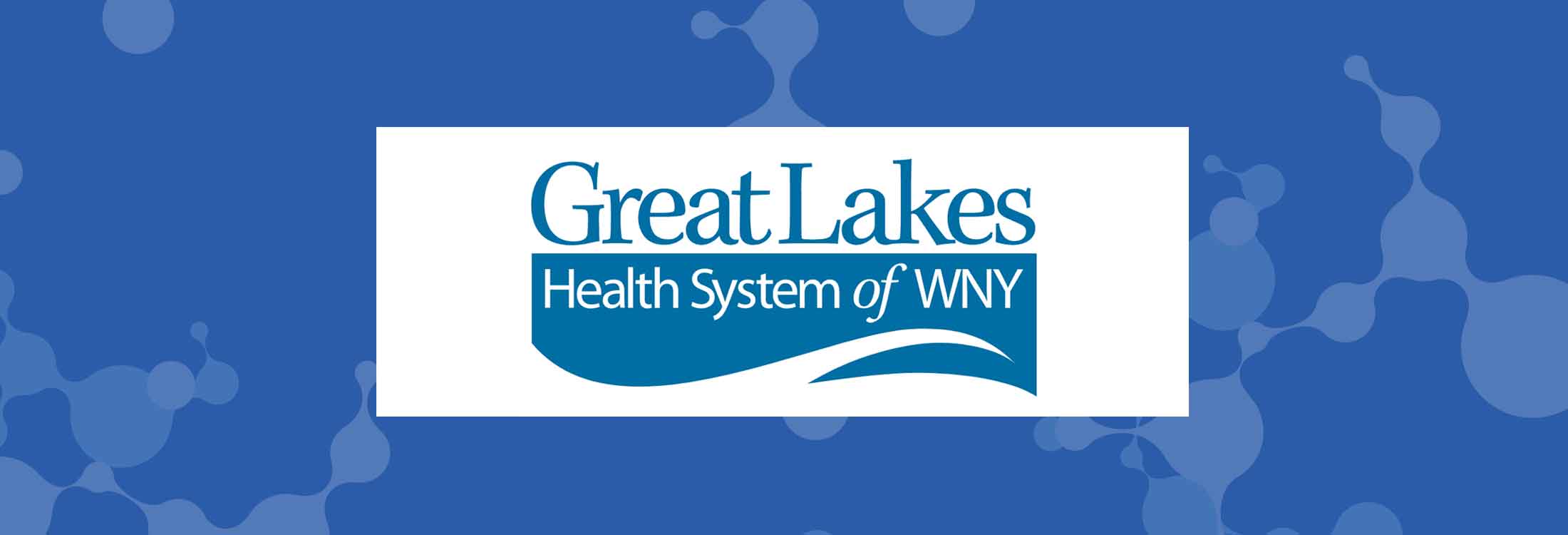Best Practices: Building the Future of Multidisciplinary Cancer Care

GREAT LAKES HEALTH SYSTEM EMPOWERS RESIDENTS AND GRADUATE STUDENTS AT THE UNIVERSITY AT BUFFALO WITH A FIRST-HAND LOOK AT COLLABORATIVE CANCER CARE OF THE FUTURE
Tumor Boards were a part of life for those at Great Lakes Health System, which included six hospitals, multiple care sites and the University at Buffalo School of Medicine and Biomedical Sciences. However, physician participation was often low due to the distance physicians and specialists had to travel to participate in person. The remote connection tools being used were wrought with technical challenges. Graduate students and residents also struggled to participate due to their hectic class and study schedules.
The process of preparing for and conducting tumor board conferences was extremely time-consuming and cumbersome, which ultimately limited the health system’s ability to expand their tumor board conferences and limited the patient’s opportunity to benefit from multidisciplinary discussions of their cases. Michele Hubert-Fiscus, Cancer Conference Director at Great Lakes Health System, described the entire process as a nightmare.
“We had to collect images, reports, documents and other information from all of the different groups. Then, we had to pull together a PowerPoint presentation, making sure it was well-organized and that we didn’t put too much information on one screen so everyone could easily see it,” said Hubert-Fiscus. “With our previous tools, each participant would struggle to share their screen when it came time for them to speak. The permission-based hand-off for screen sharing was disruptive and wasted valuable physician time.”
PROFILE AT-A-GLANCE
Great Lakes Health System is the largest healthcare network in Western New York, managing Erie County Medical Center Corporation and five Kaleida Health Hospitals, multiple medical centers and home care service providers, and the University at Buffalo’s School of Medicine and Biomedical Sciences world-renowned research capabilities. The team holds 14+ tumor boards per month with an average of 20 participants per conference.
When the health system decided to increase the frequency and number of its tumor board conferences to create more opportunities for patients to benefit from collaborative care, the administrative team turned to OncoLens, which has been running successfully at one of their hospitals in Buffalo.
Hubert-Fiscus and her team initially started using the treatment planning platform to reduce the amount of time and manual effort associated with preparing for the tumor boards. All the information needed on each case could be placed in one central, online location. The system told everyone exactly what information was required and when. As the system is web-based, any authorized person can access and post information from anywhere, at any time.
THE IMPACT OF COVID
When the COVID-19 crisis hit in March of 2020, it seemed as though all their progress in managing tumor boards would be stopped in its tracks. The quarantine and social distancing rules could have deterred physicians from getting together in person. When OncoLens offered no cost usage of its virtual tumor board capabilities to aid care teams during the pandemic, Hubert-Fiscus knew it was the right time to give it a try.
“I was nervous. I wasn’t sure we were going to keep our tumor boards going through the lockdown. When we received the notification from OncoLens about their offer to try their virtual tumor board technology, we signed up right away. I had training for one week, and the following week we went live. We were able to get 40 providers along with our pathology and radiology team up and running. We ended up not missing any of our tumor boards due to COVID, and we haven’t missed one since,” added Hubert-Fiscus.
When asked how she made it happen so quickly, she said, “For me, it came down to both the software being so easy to use and the customer support team being so great. The OncoLens team has been amazing every step of the way. They even joined our tumor boards just in case we needed any technical assistance. We requested a few changes, and they quickly made the adjustments. The support has been phenomenal.”
THE EVIDENCE OF SUCCESS: GROWING PARTICIPATION IN TUMOR BOARDS
Going virtual has opened the Great Lakes Cancer Care Collaborative tumor board conference to more physicians and specialists. “We have definitely seen an increase in the number and type of providers attending our tumor boards since going live with the OncoLens virtual tumor board. The convenience of participating from anywhere at any time makes it all possible. We’ve even been able to include our residents and medical students from the University at Buffalo School of Medicine and Biomedical Sciences, which is part of the Great Lakes Health System,” said Hubert-Fiscus.
HANDS-ON EXPERIENCE FOR MEDICAL SCHOOL RESIDENTS
OncoLens gives the residents and graduate students a powerful, hands-on learning experience. “It’s extremely valuable for the residents and students to see care collaboration in action and be an active participant. They see first-hand how robust discussions among multiple disciplines can positively impact the care treatment plan. Plus, we are able to give them CME credits for their participation.”
“I would give OncoLens nothing but accolades all the way around – both the software and the support.” – Michele Hubert-Fiscus, Cancer Conference Director
In their OBGYN tumor boards, the residents are the ones who actually present the cases. The attending physician challenges them with questions, which really makes them think. The templates in the system help them follow along with the necessary guidelines, and it is a positive experience for everyone.
“The OncoLens platform has allowed us to bring so many more people, including graduate students and residents, together to have really robust discussions about patients.” – Michele Hubert-Fiscus, Cancer Conference Director
Overall, Hubert-Fiscus believes that the OncoLens platform has also enabled the team to have more timely and productive tumor board conferences. She commented, “Being able to have everything organized and easy to reference by plugging certain information in the drop boxes helps make the most of our time together. Even the relevant clinical trials are pulled up and presented in the system, so we don’t have to go digging in a different website. The cancer-specific templates provided in the system help us efficiently and consistently walk through the necessary guidelines.”
A POSITIVE RESPONSE FROM THE TEAM
Since going live with the virtual tumor board technology, conference coordinators are not the only ones happy to have OncoLens on their team. Hubert-Fiscus shared a story of a radiologist who said he might never need to be in person at a tumor board conference again. The real advantage comes in radiology’s ability to present directly from their own office and drive their imaging system live, instead of having to use static images in a PowerPoint. For pathologists, the slide images are of much higher quality, and the level of detail the participants can see is far superior.
NO GOING BACK NOW
When asked what the future holds and if the team intends to go back to its traditional ways, Hubert-Fiscus stated, “The good news is that Oncolens gives us the flexibility to do whatever we want. We can have some participants in the room and some online – but everyone can still see the same information at the same time and have productive discussions about the patient, no matter where they are.”
For Hubert-Fiscus, she says she has no intention of going backward. “I can’t imagine having to go back to the way things used to be. The system is so convenient, and it’s great to have everything so organized. As we go through our discussions, I don’t even have to think about missing information, because the system requires me to enter everything we need. It reminds me to enter certain information with the mandated fields, so nothing is missed.” This, in turn, supports the Health System’s aggressive goals for quality care.
Whatever the future holds as a result of COVID, Hubert-Fiscus is not worried. She said, “For me, the support we receive from the OncoLens organization is exceptional. I’ve never worried about anything because I always know that I have someone right there with me, helping us grow our platform and capabilities for the greater good of our organization and our patients.”


